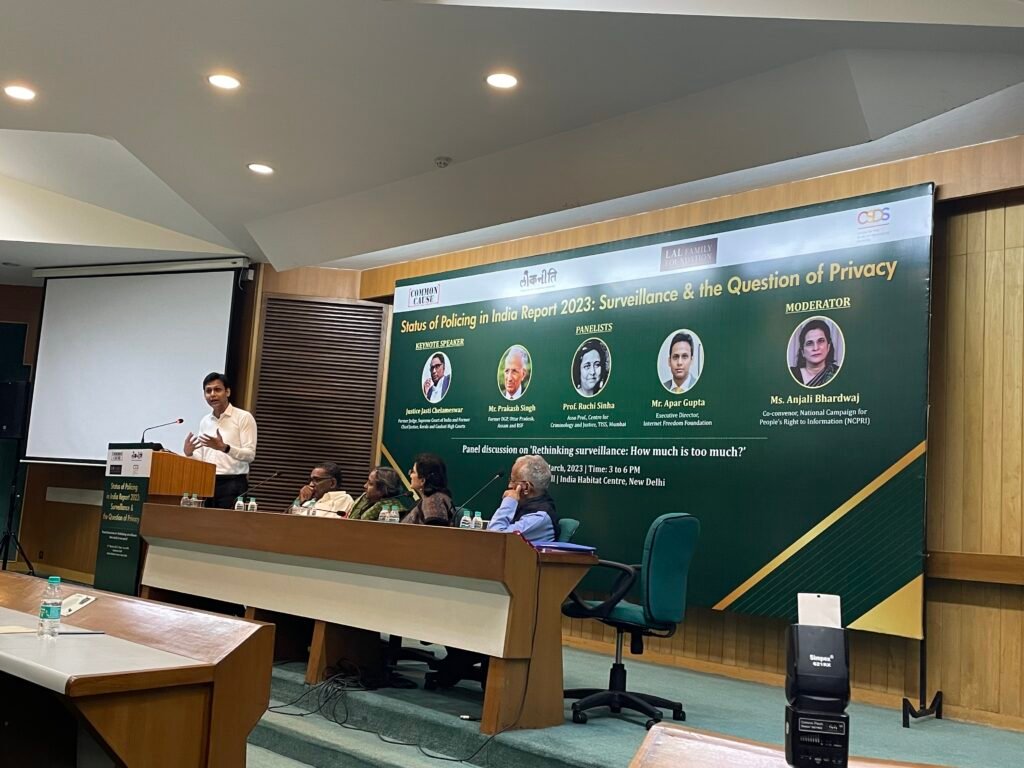The survey report states that the support for any form of surveillance is "directly proportional" to the respondent's socio-economic status, i.e. the richer the respondent the more the support.
Ghazala Ahmad | Clarion India
NEW DELHI — The poor segments of society and certain communities like Dalits, Muslims and Adivasis have a deep distrust for the administration and therefore are averse to the notion of allowing police to collect biometric details of convicts, under-trials and arrested people, a study has found out.
Moreover, the rate of incarceration of certain communities glaringly disproportionate to their population adds to the suspicion, says the study titled ‘Status of Policing in India Report 2023: Surveillance and the Question of Privacy’ conducted by Common Cause and Centre for Study of Developing Societies (CSDS).
For the compilation of the report, released here Friday, surveyors spoke to a total of 9,779 individuals in 12 states and Union Territories.
“The study also involved focus group discussions with domain experts, in-depth interviews with serving police officials, and an analysis of media coverage of surveillance-related issues.”
The findings of the survey indicate a “high-level of public support for certain forms of government surveillance, but also a lack of public awareness regarding critical issues such as the Pegasus scandal and the Puttaswamy case.”
While Pegasus refers to the alleged usage of military grade spyware for surveillance, the judgement in the Puttaswamy case formally recognised right to privacy as a fundamental right.
The survey report states that the support for any form of surveillance is “directly proportional” to the respondent’s socio-economic status, i.e. the richer the respondent the more the support, the survey found.
Some of the key findings of the survey state that “only one in four people strongly feel that CCTVs carry a risk of illegal mass surveillance.”
“Nearly three out of four people strongly believe that CCTVs help monitor and reduce crimes,” it said.
About half of the respondents supported the collection of biometric details of suspects while Adivasis and Muslims were “most critical” of the police collecting biometric details of all suspects.
More than one out of two people strongly support the use of drones by the armed forces, government, and police. However, farmers and the poorest are most likely to oppose drone usage by government agencies, the survey found.
“One out of two people fully support the use of FRT (facial recognition technology) by the government, and police. People are four times more likely to strongly support the use of FRT by government agencies, compared to its use by private entities,” the survey found.
Nearly two out of three respondents believe that political parties surveil citizens for electoral gains, it said.
The survey also found that large sections of the respondents feel government surveillance by CCTVs (52 per cent), drones (30 per cent) and FRT (25 per cent), etc. to suppress protests and political movements are “justified” to a great extent.
However, it said, the respondents from Punjab are least likely to support government surveillance during protests, while those from Gujarat are most likely to support it.

